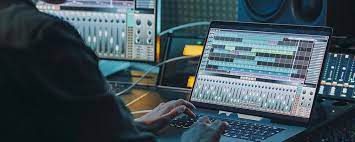Artists need to be able to use many skills to succeed in today’s music industry. Electronic music is still one of the most loved genres of music worldwide. It now encompasses many styles and genres. The Electronic Music Production Program was designed to help students master every aspect of electronic music production so they can perform in any setting.
A modern understanding of music theory is tailored to the needs of the modern producer or songwriter.
It is very different from a repetitive 8-bar loop that drones on for hours. A song with a memorable melody, smooth transitions, clear emotions expressed through the chord progression and a strong bass line, which provides a solid foundation for the chords and compliments the rhythm and melody, will be more effective. While it is true that you don’t need to be a hardcore musician to create a song with great sound, it can help if you have mastered the basics of music theory.
This is a diverse look at electronic music genres and how they are arranged.
Understanding the structure of electronic music is key to creating memorable and lasting electronic music. You must first understand how they are made. Then you can learn about what works for that audience and add your spin. It is important to understand the workings of a genre and learn about how it is assembled. This will help you spark creativity and encourage experimentation. The possibilities of creating new ideas are endless when you have a broad range of styles to choose from, such as a house, techno, and dubstep. Being able to produce in various styles will increase your marketability as a producer.
Fluency in technical aspects of music production, mixing and mastering.
Ideas and creativity are just one part of the creative process. If a producer is not technically savvy, their job becomes exponentially more challenging–especially now that most producers are working primarily alone and doing the work themselves, from composing, recording and tracking to mixing and mastering for release. No matter how basic the tools seem, a producer should feel comfortable with them. A studio full of expensive gear can be overwhelming and unnecessary for greatness. Some of the greatest electronic music ever created was made with just one or two instruments. However, the artist’s command of these tools made it stand out from the rest. It doesn’t matter if you are using software, hardware or plugins; getting used to the engineer/technician hat will make it easier to create amazing tracks.
The fundamentals of sound design, synthesis, sampling, and music production, as applied to current musical styles.
Electronic music production has one of its most important aspects: the ability to create unique sounds that enhance the story of a song. If ten producers use the same presets on the same synthesizer, they can make something good, but where is the originality? Does that sound from an electric piano tell a story? A lo-fi keyboard sound has been combined with audio samples and tape FX to create a unique layer. Consider the mediocre trap beat with an 808 drum set and DAW software. Compared to a drum mix made from edited and re-tuned pieces of a recording of the producer dropping his car keys on a table, the former is more memorable and lasts longer. A producer will be able to create their sound by understanding the basics of sound design, sampling, and synthesis.
Understanding the music business, its major elements and players and how to jumpstart your career.
Yes, art can be made for the enjoyment of art. Music artists want their music to be heard, gain fans, collaborate with other artists and possibly even perform in front of huge audiences. And to do that, they need to fund their dreams. None of this can be achieved without clearly understanding your artist’s goals and the audiences you are trying to reach. Understanding how record labels work will allow you to decide whether to release your music on a label or if you prefer to be independent and do it yourself (DIY). The producer will understand the international distribution and how to release music. The artist can make informed decisions about hiring booking agents and managers. It seems that artists who understand the inner workings of the industry will find it easier to get their music to the right people and places.
